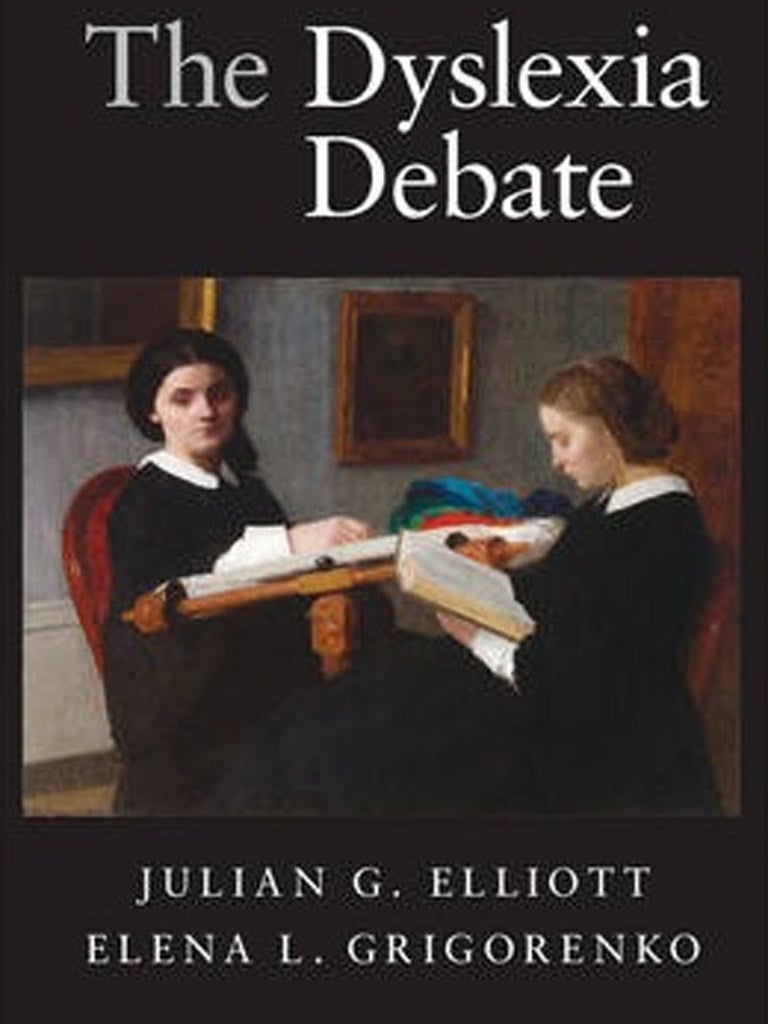Dyslexia a 'meaningless label' claim experts in controversial new book

Your support helps us to tell the story
From reproductive rights to climate change to Big Tech, The Independent is on the ground when the story is developing. Whether it's investigating the financials of Elon Musk's pro-Trump PAC or producing our latest documentary, 'The A Word', which shines a light on the American women fighting for reproductive rights, we know how important it is to parse out the facts from the messaging.
At such a critical moment in US history, we need reporters on the ground. Your donation allows us to keep sending journalists to speak to both sides of the story.
The Independent is trusted by Americans across the entire political spectrum. And unlike many other quality news outlets, we choose not to lock Americans out of our reporting and analysis with paywalls. We believe quality journalism should be available to everyone, paid for by those who can afford it.
Your support makes all the difference.Dyslexia is a “meaningless” label which is holding back teachers and parents from helping children with their individual reading difficulties, two experts have claimed.
Resources are wasted by putting young people through tests to prove or disprove a dyslexia diagnosis, which has little bearing on the type of help they are likely to need, according to a new book, The Dyslexia Debate.
However, the leading UK dyslexia charity challenged the findings and said that dyslexia was a “helpful” term which allowed people to “make sense” of their reading problems and enabled teachers to understand and help pupils with their reading.
The new book, by Professor Julian Elliott, of Durham University’s School of Education, and Dr Elena Grigorenko, of the Yale School of Medicine, is the result of five years of study in education, genetics, neuroscience and psychology.
It argues that dyslexia is too imprecise a term, which confuses between a number of different types of reading difficulty.
Professor Elliott, a former teacher of children with learning difficulties, who caused controversy when he raised doubts about dyslexia in an episode of Channel 4’s Dispatches programme nearly a decade ago, told The Independent that there was also a risk that children who did not get a dyslexia diagnosis were being ignored, despite having reading problems.
“Some people say the dyslexia label stops people assuming a child is struggling because they are lazy or not very bright – but what that means is that children who do not get the dyslexia assessment are seen as lazy or stupid,” he said.

Children of any ability could have reading difficulties, he said, but it was parents of children at “leafy schools” who were most likely to seek a dyslexia diagnosis, leading to inequality of opportunity.
“We need to identify specific difficulties that youngsters have in their academic life… other aspects of literacy skill, like reading fluently, like spelling, the ability to express yourself through written language, your handwriting.
“Rather than coming up with a term like dyslexia, which is extremely nebulous, we’re much better having a profile of these particular skills [that children struggle with] and dealing with them directly,” he said.
But Dr John Rack, head of research at the charity Dyslexia Action, said that the term had a scientific and educational value and that many people “fall into a consistent and recognisable pattern that is helpful to call dyslexia.”
Dyslexia as it is commonly understood is a difficulty in “decoding” words, leading to problems with reading and spelling. It is believed to affect between four and eight per cent of all children in the UK.
Join our commenting forum
Join thought-provoking conversations, follow other Independent readers and see their replies
0Comments